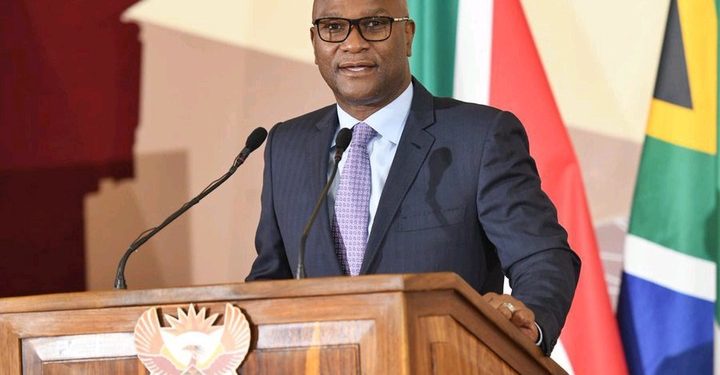The 22nd story of the Paris Hyatt Regency Hotel was the site of the tragic death of Nkosinathi “Nathi” Mthethwa, a former police minister and South African ambassador to France, on September 30, 2025. His wife reported him missing after getting a disturbing cryptic text; the 58-year-old had booked into the motel hours earlier.
French authorities used canine units to scour the surrounding forests for clues, but they eventually found his body behind a locked, forced-open window. There was a suicide investigation launched by prosecutors, who are ruling out foul play at this time; the foreign ministry of South Africa has verified the death of a “distinguished servant.”
Amid a whirlwind of controversies, this diplomat’s sudden departure has shocked the country and stoked conspiracy theories about hidden agendas and undue influence. The post-apartheid era in South Africa was marked by Mthethwa’s rise from activist in KwaZulu-Natal to power broker. He became a member of the African National Congress in 2007 after rising through the ranks after being born in 1967.
During his tenure as minister of police from 2009 to 2014, he led efforts to combat the country’s alarmingly high crime rate, however he was criticised for the lack of swift action against corruption. His subsequent terms as minister of arts and culture (2014–2019) and minister of sports, arts, and culture (2020–2023) shed insight on his cultural diplomacy, which included the lasting impact of the 2010 World Cup. He served as South Africa’s representative at UNESCO and was appointed ambassador in December 2023.
The state capture findings of the Zondo Commission, which investigated appointment favouritism, however, cast a shadow over his career in law enforcement. Accusations cast the longest shadow over Mthethwa’s last days. Eleven days earlier, on September 19, Nhlanhla Mkhwanazi, the commissioner of police of KwaZulu-Natal, gave testimony at the Madlanga Commission of Inquiry into allegations of police corruption and political interference.
In 2011, Mkhwanazi claimed that Mthethwa had used his ministerial power to protect Richard Mdluli, the infamous chief of Crime Intelligence who was accused of corruption for secretly funding his own lavish lifestyle with cars and homes. While Mkhwanazi was serving as acting national commissioner, he asserted that Mthethwa had pushed Inspector-General Faith Radebe to withdraw a prosecution letter against Mdluli and put an end to disciplinary proceedings.
Concerning Mthethwa’s demands, Mkhwanazi remarked, “That was the worst political interference I ever experienced.” He characterised them as a violation of police integrity. The poisonous combination of allegiance and cover-ups throughout Zuma’s regime was on full display when he refused to obey without formal instructions in writing. There were plans for Mthethwa to testify, which may have revealed further details about ANC infighting and protection rackets. He is one of three police ministers related to KwaZulu-Natal who are implicated.
In the wake of Mthethwa’s death, South Africa is still processing the loss and dealing with unfinished business. While President Cyril Ramaphosa praised his diversified service and referred to it as a “premature and traumatic” death, Foreign Minister Ronald Lamola joined the worldwide sadness. Veterans of the African National Congress (ANC) praised his union fights and anti-apartheid stance, while online naysayers call it a “movie” storyline and speculate about his timing.
The Madlanga Commission is now moving forward without him, which might lead to disclosures being stalled as it investigates the political killings and widespread corruption in KwaZulu-Natal. Even in exile in Paris, the spectres of power continue to stalk, as Mthethwa’s death shows. The ascent and fall of Mthethwa’s story reflect the tumultuous democracy in South Africa as the Seine is cooled by autumn.
His life was a dangerous tapestry of transitions, from township fighter to fallen envoy. Is the goal here to bring interference networks to their knees or to further bury them? The French investigations into that fatal communication may provide leads, but the truth will be revealed in the courtrooms of Johannesburg. His downfall necessitates the unwavering quest for truth for a nation afflicted by secrecy.






















